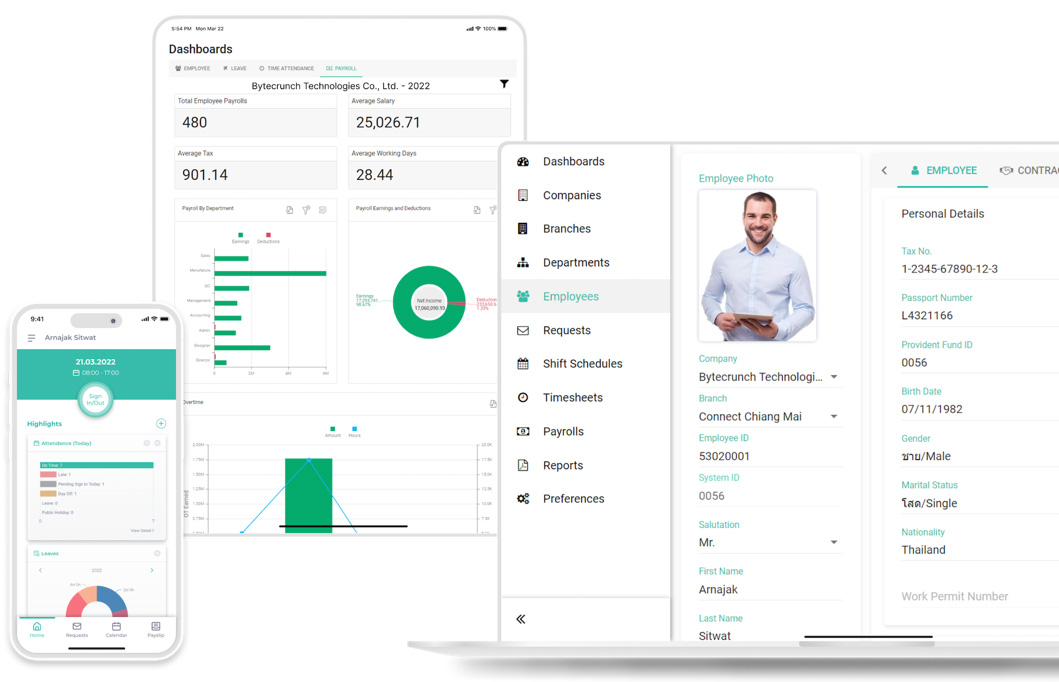What is HR?

What is HR?
As companies grow larger and gain more customers, they need more staff to help them with their tasks. For small businesses, managing a handful of staff is not usually a problem but the task becomes much more demanding when more staff are involved.
And it’s not just the increased workload that companies need to adjust to but also increased complexity. More staff means a more varied and dynamic workforce that needs to be worked with accordingly and there are strict rules that must be adhered to in some cases.
As such, many growing companies will create human resources (HR) departments whose role is to manage the company’s workforce. And not only will creating such a department remove much of the workload from senior management, but it can also help the business to get the most from its workforce.
Here we take a closer look at what HR is and why it is important for your business.
What Does an HR Department Do?
HR departments perform numerous roles, all of which involve the company's workforce. While those roles are varied, they can usually be placed into one of 4 categories, which are:
Recruitment
One of HR’s key roles is to help the company with recruitment. HR teams will typically be directly involved throughout the recruitment process, including being present at interviews. The presence of an HR rep during the process helps ensure rules are adhered to while also lending recruitment expertise to departmental managers.
HR’s job usually begins long before the interview process even starts. Instead, HR will be involved with placing job ads, processing applications and making preliminary interviews where necessary. Regardless of the precise details of the process, the initial stages will typically be designed to help identify suitable candidates and form a shortlist.
Training and Development
Most modern businesses invest in training and development where they can to help get the most from their employees. This arrangement is beneficial for both parties because the company gets better-trained employees, while the personnel become better placed to further their careers.
Much of the training will be preprepared with set procedures that are often set in place by the HR team. As such, the company has staff trained on their systems and equipment specifically, creating a tailor-made solution for the best results.
Performance Management
It is unfortunately almost inevitable that some of your team won’t be as productive as required, and you will also occasionally encounter disciplinary issues. And when such issues do occur, HR is usually involved in the process.

As well as helping to find the right staff, HR teams are typically also responsible for helping to maintain your employee’s overall performance. for example, HR might need to get involved with any productivity or disciplinary issues, and will often try to find a solution that helps the employee become a productive member of the team.
Often, an easy and workable solution can be found that works for all parties. For example, some people will feel uneasy if they feel as though they are being watched by others and finding a quiet part of the office could help them perform as expected. HR will also often introduce an attendance management system to monitor individual employees and give management an overall look at their processes.
Incentives
One of the best ways to get the most from your staff is to give them incentives and recognize their contributions. As you may have guessed, this role usually falls to HR.
HR can choose from a wide range of incentives, from employee of the month certificates to monetary rewards. Gift rewards don’t usually have to be expensive and the employee in question will usually be delighted that their hard work has not gone unrecognized.

One of the most effective of all incentives is promotion opportunities, and HR typically works with the workforce to help them identify ideal career paths and give them the tools and training they need to progress.
How Does HR Work with Other Departments?
HR departments typically work closely with heads and other representatives of different departments. For example, HR will work with an accounting department manager to discuss vacant roles and who they need to fill those roles. Managers of other departments will also often attend interviews with HR representatives and assist with onboarding, etc.
In some cases, HR will be ‘the bad guy’ when it comes to disciplinary issues. However, that does not mean to say they fulfil an authoritative role, looking over your shoulder. Instead, HR is there to help businesses and their workforce maintain high productivity and job satisfaction levels.
HR will also sometimes be ‘the good guy’ when it comes to maintaining employees’ rights and working conditions. The HR department will also often have the role of ensuring the company offers positive working conditions that help ensure the workforce is comfortable as well as productive.
Is HR A Stressful Job?
It might not appear to be the case from the outside looking in, but HR is not an easy job. This is especially the case for those in senior management roles. There are strict and often complex laws to work to, and companies will also have their own expectations regarding recruitment.
HR can also often involve long hours, with heavy workloads that can leave you feeling exhausted. Not only that, but HR involves dealing with sometimes uncooperative personnel which can be difficult to cope with.

But although HR is known as a stressful job, it can also be very rewarding. For one thing, HR professionals are in demand, meaning you will likely have little difficulty finding work. Not only that, but senior HR professionals can find leading roles in some of the worlds largest organizations, helping them reach their potential. Such roles can be highly satisfying financially and in other ways.
Why is HR Important for Companies?
Of course, HR encompasses day-to-day roles like recruiting and training, but they offer so much more to businesses that help them prosper. Some of the benefits HR departments offer include:
Improved Recruitment
Recruitment can be a lengthy, labour-intensive process that could lead to shortcuts being taken and rushed, poor decision-making. However, a professional HR department will help take much of the work from you and have the resources to screen and interview all applicants thoroughly. Plus, of course, an HR team will have the experience that will help them identify the best candidates.
Not only that, but HR can also speed up the recruitment process with dedicated teams allocated to the task. This will help ensure the company continues to have a sufficient workforce to run smoothly and productively.
Appeal to the Best Talent
A talented HR team will help ensure your business will attract the best talent available, giving you a productivity boost. HR achieves this not only through a professional and well-executed interview process but also by ensuring the company has a strong reputation for taking care of its workforce. Appealing to the best available talent helps companies boost productivity, job satisfaction, innovation, and numerous other metrics that help a company flourish.
Retain Your Best Talent
Not only will HR help you recruit the best talent, but they will also help you keep them. At any one time there may be several competitors looking to recruit your top talent, making it important that you remain the most appealing option. Not only does this help you maintain an advantage over the competition, but it will also help reduce the costly and often time-consuming recruitment and training processes to fill the empty role.
Boost Productivity
A professional HR department can help your company boost its productivity in several ways. For example, they can help you find the right talent in the first place so they have the tools to hit the ground running. Not only that, but HR will provide training and other activities that will help ensure existing employees are productive team members. And being productive helps with arguably the most important metric in business, which is your bottom line.
Compliance with Regulations
Recruitment laws and regulations can be complex and nuanced, and falling foul of the law could potentially lead to harsh penalties, making it a good idea to ensure you comply at all times. A professional HR department will be well-versed in recruitment law, giving you peace of mind in knowing that you are following the law at all times. They will also
Take Training In-House
Training can be time-consuming, expensive, and inconvenient. But it’s still necessary. However, you can help to reduce some of the cost and inconvenience by organizing your training opportunities in-house, which HR can play a part in. Not only can this help reduce costs otherwise spent on training companies, but you can also organize training as per your company’s requirements.
Payroll
HR often also often works closely with the accounting department to help ensure payroll goes smoothly and accurately. HR payroll will have the appropriate details regarding overtime and other factors related to payroll to help ensure the employee receives the correct amount. The payroll software we have developed is also often used to help make the process quicker and easier.
Summary
HR is an essential role in many businesses, playing a key part in helping them achieve their aims. They play an active role in recruiting the right talent and helping ensure they are happy and productive team members. HR departments are also experts in recruitment laws, and will often help solve disputes between staff and their employers.
The team at Byte HR has years of experience in developing HR Management software and understands the needs of business, HR and the workforce. We have created a range of HR-related products that will help automate and streamline your processes, ensuring your business remains ahead of the competition. To arrange a free demonstration of our products or to talk to a consultant, complete this form on our website.


